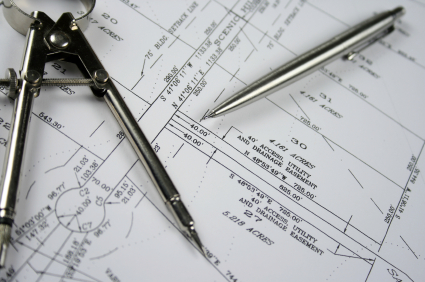
Plot Plans, also called Mortgage Inspection Plans, were once part of every Massachusetts real estate purchase closing. These days, some lenders do not require them and I will tell you why in this post. However, despite the limitations of a plot plan, I think it’s a good idea for buyers to purchase a plot plan at closing. The typical cost of a plot plan is around $125.00 so it’s affordable.
While it is not nearly as accurate as a full instrument land survey, a plot plan will give the buyer a visual of the lot lines, the approximate location of the home and accessory structures, and any easements running through the land. Also, when you go to sell your property, a plot plan is helpful for prospective buyers to review as part of the marketing package.
What Is A Plot Plan?
A plot plan, also called a Mortgage Inspection Plan, confirms the following information:
- Does the house or building, as well as accessory structures (pools, sheds, etc), conform to the local setback zoning by-laws?
- Does the house or building, as well as accessory structures, fall within the FEMA flood hazard zone (which would require flood insurance)?
- Are there any building encroachments?
- Are there any recorded easements running through the property?
In addition to answering these questions, a plot plan includes helpful reference information such as the deed book and page numbers, property plan numbers, land court plan numbers (if applicable), assessor map and lot numbers and F.E.M.A. rate map numbers. This information can be very helpful to the homeowner and a potential buyer as well.
How Is A Plot Plan Prepared?
It is important to point out that a plot plan is NOT a land survey, and is not prepared using standard instrument survey instruments. A plot plan is prepared using visual inspection and measuring tapes only. A physical inspection of the dwelling’s exterior is made, with tape measurements to show the approximate location of the dwelling. The preparer will review the recorded deed and plan(s) obtained at the Registry of Deeds or town offices to determine the lot configuration. Information from the field is merged with record information to create a drawing of the property (the plot plan) and the approximate location of the dwelling on the lot. The flood zone is determined. A quality review performed by Professional Land Surveyor.
The accuracy of a plot plan is usually within two to three feet. The field work involved in preparing the Mortgage Inspection Plan does not include the setting of property line stakes. Therefore, although tape measurements are sufficient to make zoning and flood hazard determinations, the plan should not be used as a substitute for a “Building Permit Plot Plan” or to determine property lines. A plot plan cannot be used as a substitute for a full instrument land survey.
What is Not Provided by a Mortgage Plot Plan?
As stated before, a plot plan has its limitations, which is a reason cited by lenders for not requiring them, such as:
- No representation is made as to the accuracy of the depicted property lines.
- No attempt has been made to verify the boundary configuration or, typically, the mathematical correctness of the legal property description.
- Property corners can not be located based on this type of plan, therefore no fences, hedge rows or other improvements can be determined or located.
- The location of any improvements shown are approximate, and therefore any planned construction should not be based on the locations as shown.
What is a Certified Plot Plan, Boundary, Land or Instrument Survey?
An accurate instrument land survey involves the location of established monuments or survey control points, which are then mathematically tied in to the property being surveyed. This process utilizes sophisticated, state-of-the-art equipment, and precisely locates both the property lines and the improvements on the property in relation to those property lines. The cost of a full instrument survey can range from $1,000 to $5,000, depending on the property. You can use a land survey for construction, Land Court, and Registry of Deeds plans.
How Do I Get A Plot Plan?
If your lender requires a plot plan at closing — check your Good Faith Estimate or closing cost worksheet — it will order one for you and you’ll have it at closing. If your lender does not require a plot plan, speak to your closing attorney and they will gladly order one for you!
______________________________________________________________
 Richard D. Vetstein, Esq. is an experienced Massachusetts real estate attorney. Please contact him if you need assistance with a Massachusetts purchase or sale transaction.
Richard D. Vetstein, Esq. is an experienced Massachusetts real estate attorney. Please contact him if you need assistance with a Massachusetts purchase or sale transaction.
{ 1 comment }













